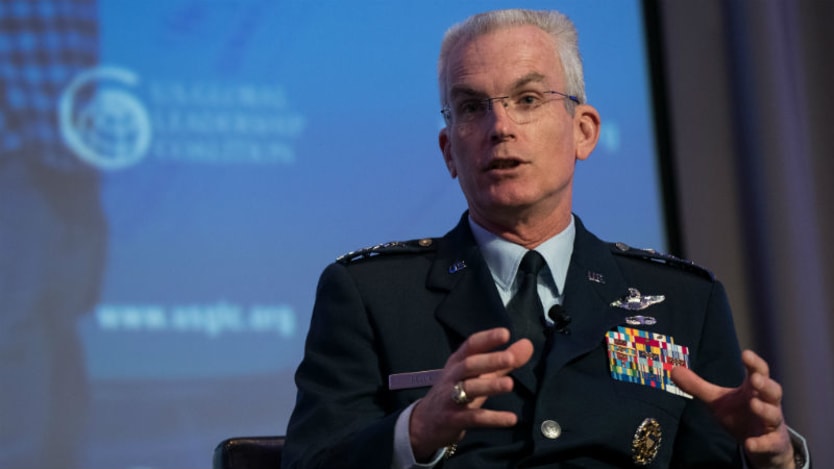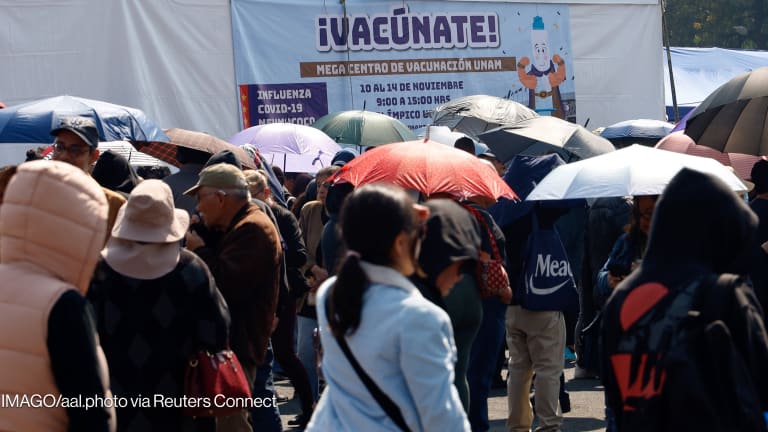
WASHINGTON — One of the United States’ top military officials spoke out Monday about the importance of diplomacy and development alongside defense in keeping the country safe.
“Dollar for dollar, every dollar spent on diplomacy and development — the growth of democratic institutions or at least civil institutions in countries that allow their leadership to be sensitive to the needs of their citizens — are immensely more effective … than having to deploy soldiers, sailors, airmen or marines to a crisis where we have to fix a problem. We're an immensely expensive enterprise,” said General Paul Selva, the vice chairman of the Joint Chiefs of Staff.
Exclusive: US to avoid 'large-scale reconstruction efforts' in future, SAR says
The U.S. government will avoid "large-scale reconstruction efforts" in the future, according to a copy of the multidepartment Stabilization Assistance Review obtained by Devex. The study also suggests a new approach to stabilization in conflict areas that seeks to maximize the value of U.S. taxpayer dollars and press international partners to pay their fair share.
He added that diplomacy and defense should play equal parts in national security and that all three need to work together. Selva said that Defense Secretary James Mattis is often telling the country’s military leaders that the Department of Defense operates “in support of our national diplomatic and foreign policy agenda, not the other way around.”
Salva and U.S. Agency for International Development Administrator Mark Green, who were speaking at the U.S. Global Leadership Coalition’s State Leadership Summit, also discussed the Stabilization Assistance Review, which creates a framework for how the State Department, USAID, and the Department of Defense can coordinate their efforts to streamline diplomacy, aid, and military operations.
Salva said the SAR allows the agencies to build on lessons learned and work together without having to establish more formal relationships.
According to Green, one key aspect of the SAR is that it allows for co-deployment in settings such as Raqqa, Syria, so that taxpayers get the maximum effectiveness and efficiency, and USAID is able to solidify military gains and help people go back to their homes. USAID has 23 staff members embedded with the military, working in close partnership, he added.
“So many of the crises that we’re facing, so much of the humanitarian work that we’re doing ... is either conflict driven or otherwise manmade ... so in order for us to get our arms around any of that, if we aren’t partnering closely with the military, we simply aren’t going to be able to achieve our goals and mission,” Green said.
While the military “ought to be a feedback mechanism” providing information to diplomats, it is diplomats who have the power to intervene in advance, Salva said. And while the military can help with logistics and transport in times of crisis, it needs USAID and NGO partners to determine what’s necessary in the response, he said.
“American leadership in diplomacy matters, American leadership in development matters, because if those two legs of this national security stool fail us, I'm all that’s left and I don’t like that world,” Selva said. “I much prefer the world where we're equal partners in getting this done right.”
In his closing remarks to the room full of representatives from across the U.S., who on Tuesday will be meeting with members of Congress, he advised them to talk about what the right balance is between defense, diplomacy, and development.
“If that doesn’t cause at least one or two people on the Hill to ask themselves that question, have we taken too much away from State and too much away from USAID, then I haven’t delivered my message today,” Selva said.








